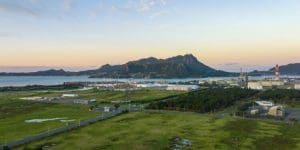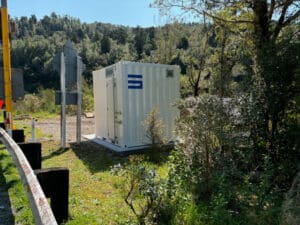Comparing Battery Energy Storage Systems (BESS) in Australia and New Zealand: Opportunities and Challenges

Contents
Australia: A Leader in BESS Deployment
Australia’s commitment to renewable energy and grid stability has led to substantial investments in BESS. The country boasts several large-scale projects, including the Victorian Big Battery, which is among the largest in the world. In 2025, the Joel Joel Battery Energy Storage System in Victoria received approval for a 350 MW capacity, marking it as Australia’s largest battery project to date.
The Australian government supports BESS through various incentives. Starting July 1, 2025, a $2.3 billion subsidy program will provide at least a 30% discount on home battery installations, with larger rebates for higher-capacity systems up to 50 kWh. This initiative aims to enhance the benefits of rooftop solar power and support grid resilience.
However, the development of BESS projects is not without challenges. In Queensland, a proposed green energy infrastructure project was rejected by the Bundaberg Regional Council due to concerns over environmental and heritage impacts, effects on residents, highway traffic, regional water supply, and emergency response capabilities related to lithium storage. Such instances highlight the complexities of balancing renewable energy development with community interests.
New Zealand: Emerging Potential with Regulatory Developments
New Zealand is witnessing a growing interest in BESS, driven by the need to integrate renewable energy sources and enhance grid stability. A notable project is the Ruakākā Energy Park in Northland, which, upon completion, will feature a 100 MW/200 MWh BESS co-located with a 130 MW solar farm.
The New Zealand government is also taking steps to support the BESS sector. From September 1, 2025, electricians will be required to obtain new micro-credentials for working with grid-connected solar PV and battery systems. These NZQA-registered courses, offered by Skills Group, aim to ensure safety and competency in the installation and maintenance of renewable energy systems.
Despite these advancements, New Zealand’s BESS market faces challenges. The uptake of solar systems has been relatively slow, with only about 3% of homes having solar connections, compared to 25% in Victoria, Australia. However, experts believe that New Zealand has the same solar potential as Victoria, indicating significant room for growth.

Shape Energy: Delivering BESS Solutions to New Zealand
As New Zealand begins scaling up its energy storage infrastructure, Shape Energy is uniquely positioned to help accelerate this transformation. With proven experience in designing and delivering turnkey BESS solutions in the New Zealand market, Shape Energy brings deep technical expertise, streamlined project delivery capabilities, and a commitment to sustainability.
Our team understands the regional nuances of energy policy and compliance, and we are ready to deploy high-performance, scalable battery energy storage systems that meet New Zealand’s evolving energy needs. Whether it’s large-scale grid support or behind-the-meter applications, Shape Energy offers trusted partnership and innovative solutions to ensure long-term value.

Powerblok Real world applications
Battery Energy Storage Systems Comparative Overview
| Aspect | Australia | New Zealand |
|---|---|---|
| Large-Scale Projects | Multiple projects, including 350 MW in Victoria | Ruakākā Energy Park: 100 MW/200 MWh |
| Government Incentives | $2.3 billion subsidy for home batteries | New micro-credentials for electricians |
| Regulatory Challenges | Some community opposition to projects | Slow adoption of solar systems |
| Market Potential | Established with ongoing growth | Emerging with significant growth potential |
Conclusion
Australia’s BESS sector is well-established, supported by substantial government incentives and a track record of large-scale projects. However, challenges such as community opposition and regulatory complexities persist. New Zealand, while in the early stages, demonstrates considerable potential for growth, bolstered by supportive regulatory measures and a commitment to renewable energy integration.
With companies like Shape Energy bringing proven capability in delivering battery energy storage systems and strategic insight to the market, New Zealand is well-positioned to accelerate its transition to a more resilient and sustainable energy future.
